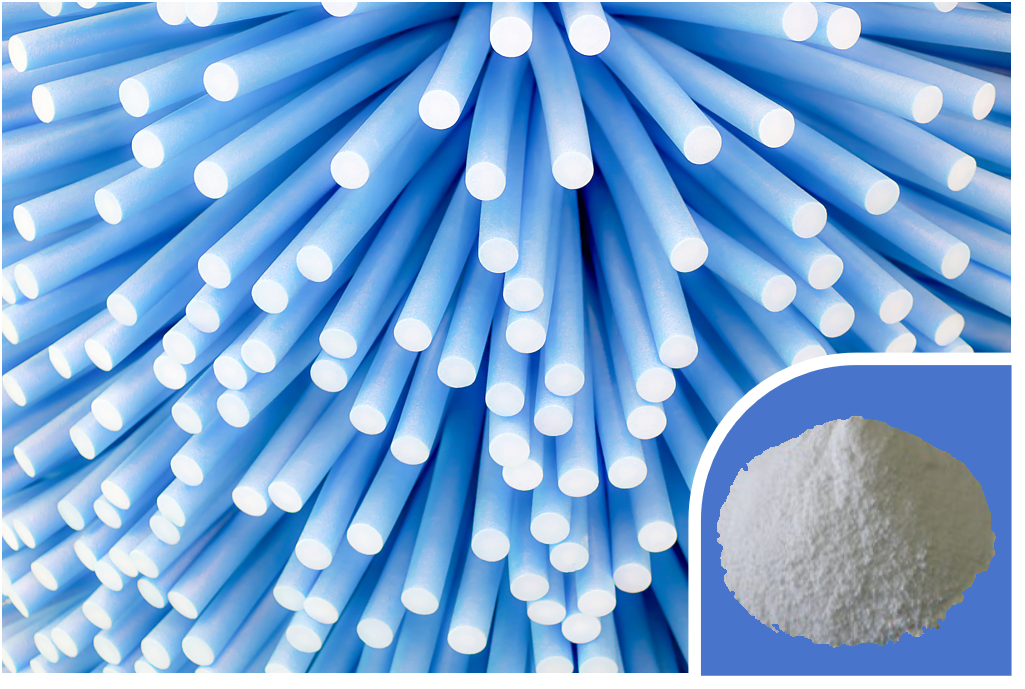Environmental and safety standards met by ammonium polyphosphate (APP)
Ammonium polyphosphate (APP) is widely recognized for its adherence to stringent environmental and safety standards, reflecting its suitability as a flame retardant across various industries. Here’s a deeper exploration of the standards typically associated with APP:
Environmental Standards:RoHS Directive (Restriction of Hazardous Substances Directive): APP complies with RoHS, ensuring it does not contain hazardous substances like lead, mercury, cadmium, or certain flame retardants above specified limits. This compliance is crucial for its use in electronics and electrical equipment, minimizing environmental impact during disposal.
REACH Regulation: Under REACH, substances like APP are registered, evaluated, authorized, and restricted to ensure their safe use and minimal environmental and health risks. This regulation ensures that APP's chemical properties and applications are thoroughly assessed and managed within the European Union.
Safety Standards:WEEE Directive (Waste Electrical and Electronic Equipment Directive): APP meets the requirements of the WEEE directive, which promotes the collection, recycling, and recovery of electrical and electronic equipment. This directive ensures that APP-containing products are responsibly managed at the end of their life cycles, reducing environmental impact.
EUP (End-of-Life Vehicles) Directive: APP formulations comply with the EUP directive, which regulates the use of substances in vehicle construction to facilitate recycling and disposal practices that minimize environmental pollution and promote resource efficiency.
Fire Safety Standards:UL (Underwriters Laboratories) Standards: Depending on the specific application and formulation, APP may conform to UL standards for fire safety. These standards validate the effectiveness of APP in reducing fire hazards and enhancing fire safety in various materials and products.
Global Compliance:International Standards: APP is designed to meet various international standards for fire safety and environmental protection, ensuring its acceptance and use in global markets. This global compliance underscores the reliability and effectiveness of APP in meeting diverse regulatory requirements across different regions.
By aligning with these comprehensive environmental, safety, and fire safety standards, APP reinforces its role as a responsible choice for flame retardancy in applications ranging from electronics and automotive parts to building materials and textiles. Manufacturers like Xusen demonstrate their commitment to sustainability and safety by incorporating APP into their products while meeting or exceeding these stringent regulatory expectations.
Basic content of ammonium polyphosphate (APP) customized for specific industries or materials
Ammonium polyphosphate (APP) is a versatile flame retardant that can be tailored for specific industries and materials based on their unique requirements. Here’s a basic outline of how APP can be customized:
Electronics and Electrical Applications:Formulation Stability: Ensuring APP is compatible with electronics materials like circuit boards and components.
Performance Criteria: Meeting stringent fire safety standards without compromising electrical performance.
Environmental Compliance: Adhering to RoHS and WEEE directives for sustainable electronics manufacturing.
Automotive Components:High Temperature Resistance: Developing APP formulations that withstand automotive operating temperatures.
Mechanical Integrity: Enhancing APP’s ability to maintain mechanical properties of polymers used in automotive parts.
Safety Standards: Meeting automotive safety regulations for fire retardancy and smoke suppression.
Textiles and Upholstery:Fabric Compatibility: Ensuring APP does not affect the texture or appearance of textiles.
Fire Retardancy Efficacy: Achieving desired flame retardancy levels for upholstery and textile applications.
Durability: Developing APP formulations that withstand washing and wear while maintaining fire retardant properties.
Building Materials:Construction Standards: Meeting building codes and regulations for fire safety in construction materials.
Material Compatibility: Integrating APP into materials like insulation, coatings, and structural components.
Long-Term Performance: Ensuring APP maintains fire retardant effectiveness over the lifetime of the building material.
General Plastics and Polymers:Versatile Formulation: Customizing APP for a wide range of plastics such as PP, PE, PVC, and engineering plastics like PA and PBT.
Process Compatibility: Ensuring APP does not interfere with the processing methods of various plastics.
Environmental and Safety Standards: Meeting global environmental directives and safety standards applicable to polymer-based products.
Environmental Considerations:Sustainability: Emphasizing APP formulations that are halogen-free and contribute to environmental protection.
Recyclability: Ensuring APP-containing materials are recyclable without compromising fire safety.
Life Cycle Analysis: Assessing the environmental impact of APP from production through end-of-life disposal or recycling.
By customizing APP formulations according to these industry-specific criteria, manufacturers can optimize fire safety while meeting the unique performance and regulatory requirements of diverse applications.





 +86-0573-89103923 / +86 182 6841 1181
+86-0573-89103923 / +86 182 6841 1181











